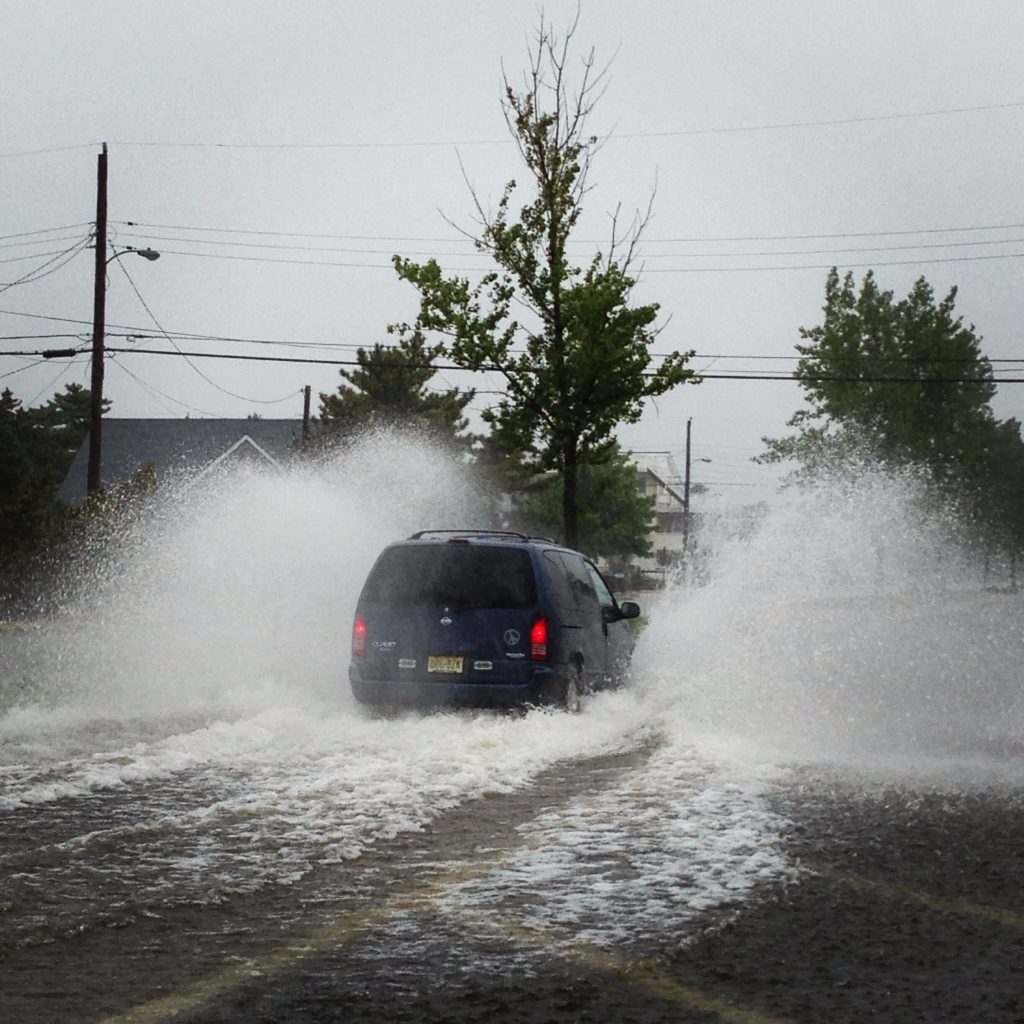Seaside Heights is joining a growing number of Jersey Shore communities to crack down on drivers who cause property damage by driving too fast through flooded roads during storms.
The borough council this week introduced its so-called “no wake” ordinance, named after boating regulations that require mariners to slow down in sensitive areas. But this ordinance covers land-lubbers.
“Every time we have that flash flooding it happens,” Mayor Anthony Vaz said during a previous discussion on the matter, before explaining how residents’ properties become damaged when vehicles send waves from the street onto private lots. “Once you start giving out a few tickets, people will get the message.”
A copy of the proposed ordinance obtained by Shorebeat holds that “The borough finds and declares that the operation of motor vehicles upon public streets or roadways during flooding conditions can create a wake which carries beyond the street or curb line, causing damage to adjacent properties.”
The ordinance text goes on to say that its purpose is to protect property of the borough and its homeowners and business owners by regulating the manner in which drivers should conduct themselves during periods of flooding.
Specifically, the ordinance states that no vehicle should be operated on a public street during a time of flooding “in a manner as to cast or discharge a wave that carries beyond the edge of the street or curb line.” The ordinance covers areas where flood water is six inches deep or more on the center-line of the road.
Land-based “no wake” ordinances are somewhat common in Florida, where public works officials or police officers set up warning signs in flooded areas after torrential rains or particularly high tides. In Virginia, the state legislature enacted a law expressly enabling municipalities to create no wake zones. The practice is less common in New Jersey, but not unheard of. Last year, Ship Bottom, on Long Beach Island, adopted the ordinance.
Violations will be punishable by a fine of no less than $100 and no more than $1,000, by a jail term not to exceed 90 days or by community service of not more than 90 days.
The ordinance will be up for a second vote, public hearing and final adoption at the council’s next meeting in April.

Advertisement

Seaside Heights & Seaside Park
In Seaside Heights, A $50M Flagship Building Rises Over the Boulevard in a Famed Location

Police, Fire & Courts
Ocean County Sheriff Establishes Drone Command Center in Seaside Heights Amid New Video










